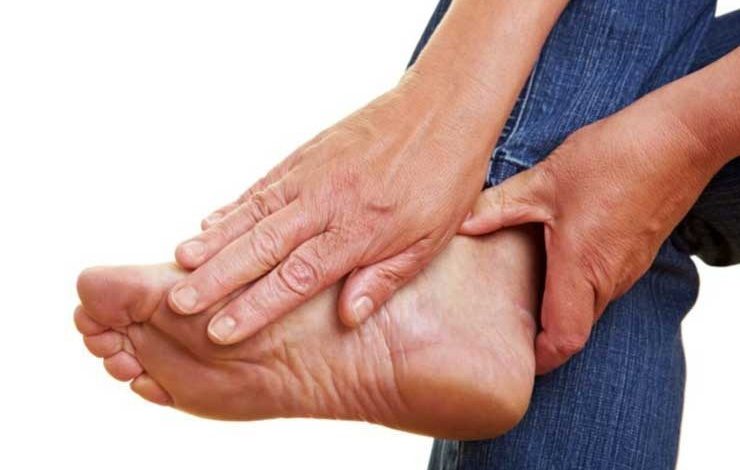List Of Blood Pressure Medications That Can Cause Peripheral Neuropathy

What is peripheral neuropathy?
Peripheral neuropathy refers to the many conditions that involve damage to the peripheral nervous system, which is a vast communications network that sends signals between the central nervous system (the brain and spinal cord) and all other parts of the body.
Peripheral nerves send many types of sensory information to the central nervous system (CNS), such as the message that your feet are cold. They also carry signals from the CNS to the rest of the body. Best known are the signals to the muscles that tell them to contract, which is how we move, but there are different types of signals that help to control everything from our heart and blood vessels, digestion, urination, and sexual function to our bones and immune system.
More than 20 million people in the U.S. are estimated to have some form of peripheral neuropathy, but this figure may be significantly higher as not all people with symptoms of neuropathy are tested for the disease and tests currently do not look for all forms of neuropathy.
Drug-induced peripheral neuropathy
Drug-induced peripheral neuropathy is a type of nerve damage that can be caused by certain medications including blood pressure drugs. This type of nerve damage can cause tingling, numbness, and pain in the extremities, such as the hands and feet.
Drug-induced peripheral neuropathy can be caused by a variety of medications, but the specific mechanism by which these medications cause nerve damage is not fully understood, but it is thought to be related to their ability to interfere with normal nerve function and disrupt the communication between nerve cells.
Symptoms of drug-induced peripheral neuropathy may include tingling, numbness, burning, and shooting pain in the affected areas, as well as muscle weakness and loss of coordination. In some cases, the symptoms may be mild and go away on their own once the medication is stopped or the dosage is reduced. In other cases, the symptoms may be severe and require additional treatment, such as pain medications or physical therapy.
List Of Blood Pressure Medications That Can Cause Peripheral Neuropathy
Some blood pressure medications that have been associated with the development of peripheral neuropathy include:
1. Beta-blockers: Beta-blockers are a class of medications used to treat high blood pressure, heart failure, and other conditions. Some studies have found that long-term use of beta-blockers may increase the risk of peripheral neuropathy. Examples of beta-blockers include Atenolol (Tenormin), Bisoprolol (Cardicor or Emcor), Carvedilol, Labetalol (Trandate), Metoprolol (Betaloc or Lopresor)and Propranolol (Inderal or Angilol)
2. ACE inhibitors: ACE inhibitors are another class of medications used to treat high blood pressure and other cardiovascular conditions. Although they are generally considered safe, some studies have suggested that ACE inhibitors may increase the risk of peripheral neuropathy in certain patients. Example of ACE inhibitors include Benazepril (Lotensin), Captopril (Capoten), Enalapril/Enalaprilat (Vasotec oral and injectable), Fosinopril (Monopril), Lisinopril (Zestril and Prinivil), Moexipril (Univasc), Perindopril (Aceon), Quinapril (Accupril), and Ramipril (Altace)
3. Calcium channel blockers: Calcium channel blockers are a type of blood pressure medication that works by relaxing the blood vessels, allowing blood to flow more easily. Although they are generally considered safe, some studies have suggested that long-term use of calcium channel blockers may increase the risk of peripheral neuropathy. Examples include Diltiazem, Verapamil Amlodipine, Bepridil, Felodipine, Isradipine, Nicardipine, Nifedipine, and Nisoldipine.
4. Thiazide diuretics: Thiazide diuretics are a type of medication used to treat high blood pressure by reducing the amount of water in the body. Some studies have suggested that long-term use of thiazide diuretics may increase the risk of peripheral neuropathy. Drugs that fall under this class include hydrochlorothiazide (HCTZ), chlorthalidone, and indapamide.
It is important to note that not everyone who takes these medications will develop peripheral neuropathy, and the risk may vary depending on the individual’s age, overall health, and other factors. If you are taking a blood pressure medication and experience symptoms of peripheral neuropathy, such as tingling, numbness, or pain in your hands or feet, it is important to talk to your healthcare provider.
How To Prevent Drug-Induced Peripheral Neuropathy
Here are some tips to help prevent or reduce the risk of drug-induced peripheral neuropathy:
1. Talk to your healthcare provider: If you are taking a medication that can cause peripheral neuropathy, it is important to talk to your doctor or healthcare provider about the potential risks and side effects. Your healthcare provider may be able to monitor your nerve function and adjust your medication dosage or switch to a different medication if necessary.
2. Take your medication as prescribed: Taking medication as prescribed is important to ensure that you are receiving the proper dose at the proper intervals. Do not skip doses or change your medication dosage without first consulting your healthcare provider.
3. Manage underlying conditions: Some medical conditions, such as diabetes and autoimmune disorders, can increase the risk of peripheral neuropathy. Managing these underlying conditions can help to reduce your risk of developing drug-induced peripheral neuropathy.
4. Maintain a healthy lifestyle: Eating a healthy diet, exercising regularly, and avoiding alcohol and tobacco can help to improve overall health and reduce the risk of peripheral neuropathy.
5. Consider supplementation: Some studies have suggested that certain vitamins and supplements, such as vitamin B12 and alpha-lipoic acid, may help to reduce the risk of peripheral neuropathy. Talk to your healthcare provider before starting any new supplements.
6. Monitor for symptoms: If you are taking a medication that can cause peripheral neuropathy, it is important to monitor for symptoms, such as tingling, numbness, or pain in your hands or feet. If you experience these symptoms, talk to your healthcare provider right away.
In summary, drug-induced peripheral neuropathy is a potential side effect of certain medications, but there are steps you can take to help prevent or reduce the risk of developing this condition. Talk to your healthcare provider, take your medication as prescribed, manage underlying conditions, maintain a healthy lifestyle, consider supplementation, and monitor for symptoms to help reduce the risk of drug-induced peripheral neuropathy.





